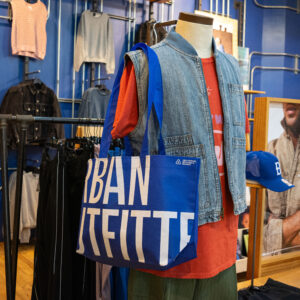
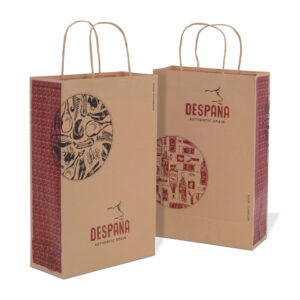
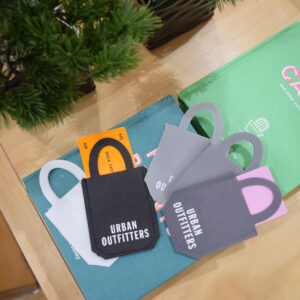
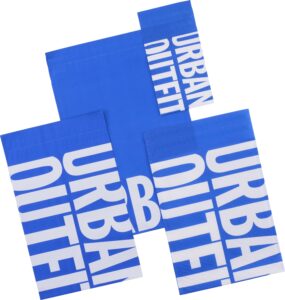

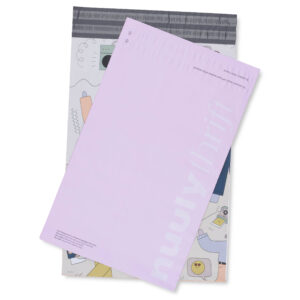



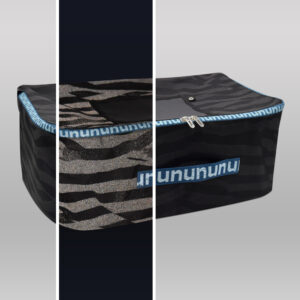
In the pursuit of a sustainable future, the packaging industry plays a crucial role. As consumers, our choices have a significant impact on the environment. Consequently, one of the most impactful decisions we can make is opting for sustainable materials in packaging. (For example: biodegradable, home compostable, recyclable, etc.)
There is currently a surge in the use of sustainable materials in packaging. Resulting in alternatives to traditional packaging material options. In this educational article, we will explain each sustainable option and explore how they are revolutionizing the industry.
Compostable Packaging
Compostable packaging is made from a wide range of sustainable materials that can break down into natural elements after disposal. Materials like these decompose best in a composting environment. Coming from renewable resources, compostable packaging offers a greener alternative to single-use plastics.
Furthermore, compostable options are particularly convenient for consumers. Allowing them to dispose of packaging in either their home compost bins or a commercial compost environment. Not only does compostable packaging reduce landfill waste, but it also enriches the soil as it decomposes. Closing the loop on the sustainability cycle.
Compostable vs. Home Compostable Packaging
There are two types of compostable packaging: compostable and home compostable. First, there’s compostable packaging. As a sustainable option, brands design this type of packaging to decompose into natural elements. Industrial composting facilities subject materials to extreme conditions, making it especially important to ensure they can withstand the process. These facilities maintain specific temperature, humidity, and microbial conditions to accelerate the breakdown of organic matter. Likewise, compostable materials typically require higher temperatures and controlled environments to facilitate decomposition effectively.
We often come across packaging materials that are compostable from renewable resources. This means that the materials in such packaging can easily break down into natural elements, which can then nourish the soil. Think plant-based polymers, corn starch, or sugarcane. After disposing of in an industrial composting facility, these materials break down into compost. Which is a nutrient-rich soil alteration that enriches land for farming or landscaping projects.
Finally, compostable packaging requires industrial composting facilities. In other words, compostable materials need special conditions found in industrial composting facilities to decompose efficiently. Moreover, industrial composting processes involve higher temperatures which accelerate the breakdown of organic matter. Unfortunately, compostable packaging is not suitable for home composting. Here’s why: compostable materials may not decompose effectively in home composting systems due to lower temperatures and different microbial compositions. In short, it’s very important to have the proper composting directions on your packaging. Whether it’s compostable or home compostable.
Home Compostable Packaging
On the other hand, home compostable packaging best decomposes in home composting systems or backyard compost bins. Companies engineer these materials to break down under lower temperatures and with microbial activity that is typically found in household composting environments.
Home compostable packaging materials often use resources that share similarities with compostable materials. However, they are formulated differently by using additives or processing techniques that enhance their sustainability for home composting. These materials include biodegradable papers and plastics, plant-based fibers, and compostable coatings that facilitate decomposition in domestic composting setups.
While both compostable and home compostable packaging materials contribute to reducing environmental impact, their suitability for different disposal methods sets them apart. In short, compostable packaging requires access to industrial composting facilities. Whereas, home compostable packaging offers a convenient solution for consumers to compost waste at home. By understanding the differences between these options, consumers can make the right choice that aligns with their sustainability goals and contribute to a greener future [in packaging].
Biodegradable Packaging
Similar to compostable packaging, biodegradable materials are also capable of breaking down into natural components over time. Although, unlike compostable materials, biodegradable packaging may require specific conditions or microbes to facilitate decomposition. Nonetheless, biodegradable packaging provides an eco-friendly solution. Especially when brands replace their traditional single-use plastic bags with biodegradable alternatives.
Post-Consumer Waste Packaging
Post-consumer waste (PCW) packaging utilizes recyclable materials sourced from products like paper shopping bags, for example, that are at the end of their life cycle. By incorporating a significant percentage of recycled content – ranging from 40-80% – these materials help reduce the demand for virgin paper resources. All while diverting waste from landfills.
Post-consumer waste packaging includes a variety of materials such as paper, kraft papers, and cardboard, for instance. Further offering a versatile solution across different packaging needs. Brands use post-consumer waste papers to create paper shopping bags, boxes, mailers, and some e-commerce supplies. When packaging items like these have PCW content, they comply with many cities and states that enforce shopping bag restrictions.
Responsible Sourcing: FSC®-Certified Papers
Sourcing materials from responsibly managed forests is extremely important for preserving biodiversity and lessening deforestation. The Forest Stewardship Council® (FSC®) certification ensures that paper products come from forests that are managed in an environmentally and socially responsible manner. By opting for FSC®-Certified papers, brands support sustainable forestry practices and contribute to the conservation of forests worldwide.
At Prime Line Packaging, we strive to create packaging solutions that take care of our planet while helping our customers leave a lasting first impression. We dedicate ourselves to minimizing the environmental impact through responsible sourcing. We are proud to be FSC® Certified (FSC®-103468). For us to craft a better world one bag at a time, our promise is clear. By 2024, every paper bag we produce will be sourced from FSC®-certified papers. Further highlighting our dedication to environmental responsibility.
Packaging Solutions with Sustainable Materials
Now, let’s further explore how sustainable materials are transforming popular packaging items:
- Paper Shopping Bags: Traditional paper bags of the past were typically made from virgin paper. Now, on the other hand, there are more sustainable materials to create the traditional paper shopping bag. These sustainable versions are crafted from recycled or FSC®-Certified papers. These bags are not only sturdy and reusable, but they can be biodegradable. Ensuring minimal environmental impact at the end of their lifecycle. Furthermore, if these bags have paper-style handles, they become part of the single-stream recycling process. Meaning, you don’t have to remove the handles before recycling.
- Reusable Shopping Bags: Reusable shopping bags are an extremely popular alternative to single-use plastics. They are available in various sustainable materials such as organic cotton, jute, rPET, or PP non-woven fabrics. By investing in durable, reusable bags, consumers reduce waste and promote sustainable shopping practices.
- Plastic Shopping Bags and Mailers: While conventional plastic shopping bags and mailers pose significant environmental challenges, innovative companies are opting for eco-friendly alternatives. Compostable and home-compostable materials derived from renewable sources help close the loop on single-use plastics and minimize the need for virgin materials.
In Conclusion
Finally, as consumers, we hold the power to drive positive change through our purchasing decisions. By choosing sustainable packaging materials, we can reduce our carbon footprint, minimize waste, and safeguard the planet for future generations. Whether it’s opting for compostable, biodegradable, recyclable, or responsibly sourced materials, every choice is important. Let’s embrace the diverse selection of eco-friendly packaging options available and pave the way for a greener, more resilient planet.
Contact us at Prime Line today to get started on your next sustainable project.



